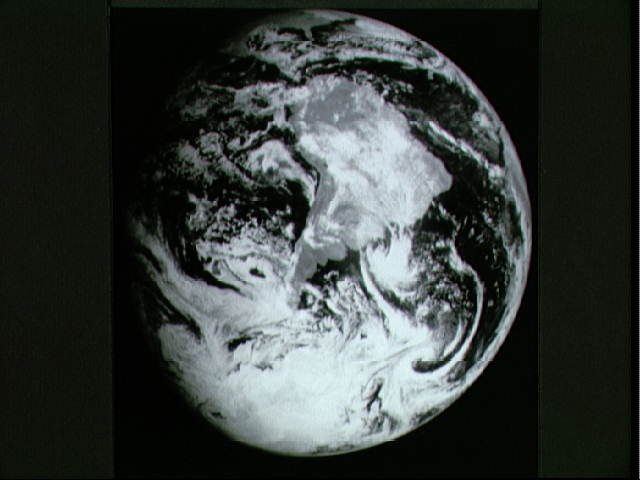Civilization
Why Did Russia Veto UN’s Ban on Nukes in Space?

Why did Russia Veto the United Nations Resolution Concerning Nuclear Weapons in Outer Space?
In April 2024, “Russia cast the only vote against the draft resolution that reaffirmed provisions in the Outer Space Treaty prohibiting the placement of nuclear weapons or other weapons of mass destruction in space.” The vetoed resolution had been approved by the U.N.’s Fourth Committee. (The Fourth Committee is one of the main six committees of the U.N. General Assembly. It is tasked with, among other things, issues dealing with space.) This veto was particularly significant because the proposed resolution was the arms control equivalent of motherhood and apple pie. Thus, something incredibly significant must have driven such a decision.
Putin is increasingly behaving like a rogue state leader, thumbing his nose at the international community. Russia has historically supported arms control that is both ill-defined and largely unverifiable, but the Russian veto to the reaffirmation of a 1967 Treaty goes beyond this. Putin’s diplomacy is becoming increasingly thuggish, reflecting the viciousness of his war against Ukraine and his disdain for Western values.
Is Russia planning to deploy a nuclear anti-satellite weapon?
The stated Russian rationale for its veto was related to the (very reluctant) Biden Administration’s confirmation of press reports of a Russian program to develop a nuclear orbital anti-satellite (ASAT) weapon. While Russia has repeatedly lied and violated its arms control commitments, it normally pretends to support arms control. There is no apparent reason to veto this resolution other than a Russian intent to deploy nuclear weapons in orbit once this capability is developed. The veto had to result in negative press coverage outside of Russia and Russia must have been aware of this when it made its decision. The Russian rationale for its veto focused attention on the reports of its development of an orbital nuclear weapons capability.
The 1967 Outer Space Treaty prohibition on the deployment of nuclear weapons in outer space is one of the oldest nuclear arms control prohibitions. The draft U.N. resolution was hardly an attack on Russia. The U.S. statement urging approval of the draft resolution did not even mention the Russian orbital nuclear weapons program. The resolution had been jointly proposed by the United States and Japan with 65 co-sponsors. The resolution “called on Member States not to even develop nuclear weapons for this purpose [deployment of nuclear weapons in space].” In this sense, the resolution goes beyond the Space Treaty prohibition, but the resolution is not legally binding and, hence, creates no legal constraint on Russian programs.
They deny having any such program or intent
The Russian veto is particularly notable in light of the fact that it officially denies any program to deploy nuclear weapons in space and claims it is in compliance with the Space Treaty.
The Russian rationalization of its position was weak. It represents little more than a dishonest attack on U.S. space weapons policy. Indeed, President Biden had even ordered a ban on U.S. testing of even non-nuclear ASAT systems.
Russian motivation for the veto is likely linked to plans to deploy nuclear weapons in space. The proposed U.N. resolution would almost certainly be cited in critical reactions to such a Russian capability if and when it became public. Russia does not have to worry about any Western in-kind response to an orbital nuclear weapons capability. There is virtually a zero possibility of a similar Western programmatic response. The only likely reaction would be denunciation with. no concrete consequences to Russia. Hence, the U.N. resolution would at most be a relatively minor additional public relations problem if and when it became known that Russia was deploying nuclear weapons in space. There is no apparent reason for the Russian veto of the resolution other than actual intent to at some point deploy nuclear weapons in orbit.
Negative reaction
Most of the current press coverage of Russian nuclear weapons deployment in space is related to the nuclear anti-satellite (ASAT) role. A nuclear ASAT capability is extremely important because of the catastrophic damage it can do to important low-altitude satellites. As the United States and Japan stated at the United Nations “a nuclear detonation in space…could destroy satellites that are vital to communications, agriculture, sustainable development, national security, and more.” In addition to this, orbital nuclear weapons can deliver no notice nuclear strikes against important time urgent ground targets. According to Russia, the new Russian Sarmat heavy ICBM has this capability, including the ability to attack the United States over the South Pole.
The most serious effects of nuclear explosions in low earth orbit are nuclear electromagnetic effects. The effects of a nuclear explosion in low-earth orbit can be devastating to human beings on the surface of the earth because they will destroy electronics and the electrical power grid over a vast area. Moreover, nuclear weapons in certain orbits can also be used for missile defense purposes. During the late Cold War, the United States reportedly had a missile defense program (Excalibur) involving a nuclear explosive powered X-ray laser. In the post-Cold War period, U.S. nuclear weapons policy was constrained by ideological considerations that did not impact Russia. Despite this, the Biden Administration is attempting to tamp down public awareness of the implications of nuclear weapons in space.
Biden won’t take this seriously
Unfortunately, the Biden Administration is not taking this threat seriously. It initially attempted to prevent this information from becoming public. This information only became public because of action taken by Congressman Mike Turner (R-Ohio) who focused attention on this issue when he cryptically said,
Today, the House Permanent Select Committee on Intelligence has made available to all Members of Congress information concerning a serious national security threat. I am requesting that President Biden declassify all information relating to this threat so that Congress, the Administration, and our allies can openly discuss the actions necessary to respond to this threat.
Before Congressman Turner’s statement, the Biden Administration intended to inform only very few members of Congress, limiting the briefing to the most senior leadership, the so-called “Gang of Eight.”
The Biden Administration has sought to minimize public perceptions of the significance of the Russian nuclear orbital program. According to President Biden:
- “First of all, there is no nuclear threat to the people of America or anywhere else in the world with what Russia is doing at the moment.”
- “No. 2, anything they’re doing or they will do relates to satellites in space and damaging those satellites potentially.”
- “No. 3, there’s no evidence they’ve made a decision to go forward with anything in space either.”
It would indeed be a violation
According to White House National Security Communications Advisor Rear Admiral (U.S. Navy, ret.) John Kirby,
We are not talking about a weapon that can be used to attack human beings or cause physical destruction here on Earth. That said, we’ve been closely monitoring this Russian activity and we will continue to take it very seriously.
He also acknowledged this would be a violation of 1967 Space Treaty. The White House gave no indication of when this weapon would become operational. Even before the Russian veto of the U.N. resolution, there was no reason to believe it would take a great deal of time to deploy such a capability.
Congressman Turner very politely characterized the White House position as “sleepwalking into an international crisis.” The fact that it is not yet operational in no way impacts its near future significance. The absence of evidence that Russia had yet made deployment decision matters little. The absence of evidence is not evidence of absence. The Russian decision to veto the U.N. resolution strongly suggests they are serious about its deployment and it may be much more than just a nuclear ASAT. An orbital nuclear capability can be related to strikes against ground targets, nuclear electromagnetic pulse (EMP) attack and missile defense. Most significant is the absurd White House position is the suggestion that nuclear detonations in earth orbit cannot “can be used to attack human beings or cause physical destruction here on Earth.” Indeed, it is very difficult to detonate nuclear weapons in low-earth orbit without having potentially catastrophic effects on humans on the surface of the earth.
This article was originally published by RealClearDefense and made available via RealClearWire.
Dr. Mark B. Schneider is a Senior Analyst with the National Institute for Public Policy. Before his retirement from the Department of Defense Senior Executive Service, Dr. Schneider served as Principal Director for Forces Policy, Principal Director for Strategic Defense, Space and Verification Policy, Director for Strategic Arms Control Policy and Representative of the Secretary of Defense to the Nuclear Arms Control Implementation Commission. He also served in the senior Foreign Service as a Member of the State Department Policy Planning Staff.
-

 Accountability2 days ago
Accountability2 days agoWaste of the Day: Principal Bought Lobster with School Funds
-

 Constitution2 days ago
Constitution2 days agoTrump, Canada, and the Constitutional Problem Beneath the Bridge
-

 Executive17 hours ago
Executive17 hours agoHow Relaxed COVID-Era Rules Fueled Minnesota’s Biggest Scam
-

 Civilization16 hours ago
Civilization16 hours agoThe End of Purple States and Competitive Districts
-

 Civilization4 days ago
Civilization4 days agoThe devil is in the details
-

 Executive4 days ago
Executive4 days agoTwo New Books Bash Covid Failures
-

 Civilization3 days ago
Civilization3 days agoThe Conundrum of President Donald J. Trump
-

 Executive4 days ago
Executive4 days agoThe Israeli Lesson Democrats Ignore at Their Peril











